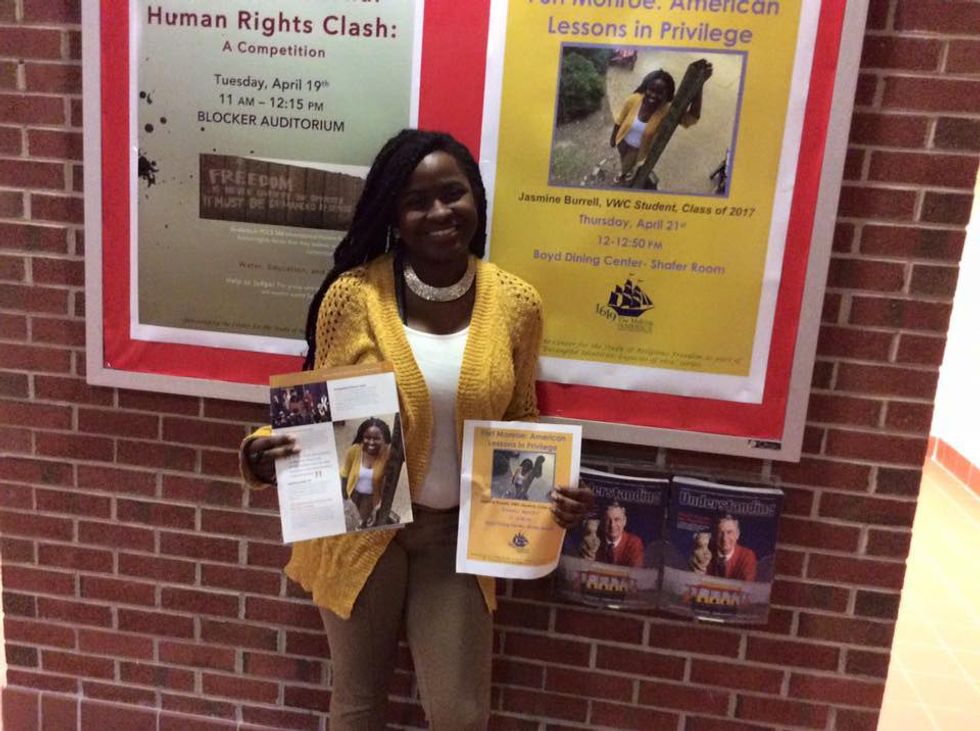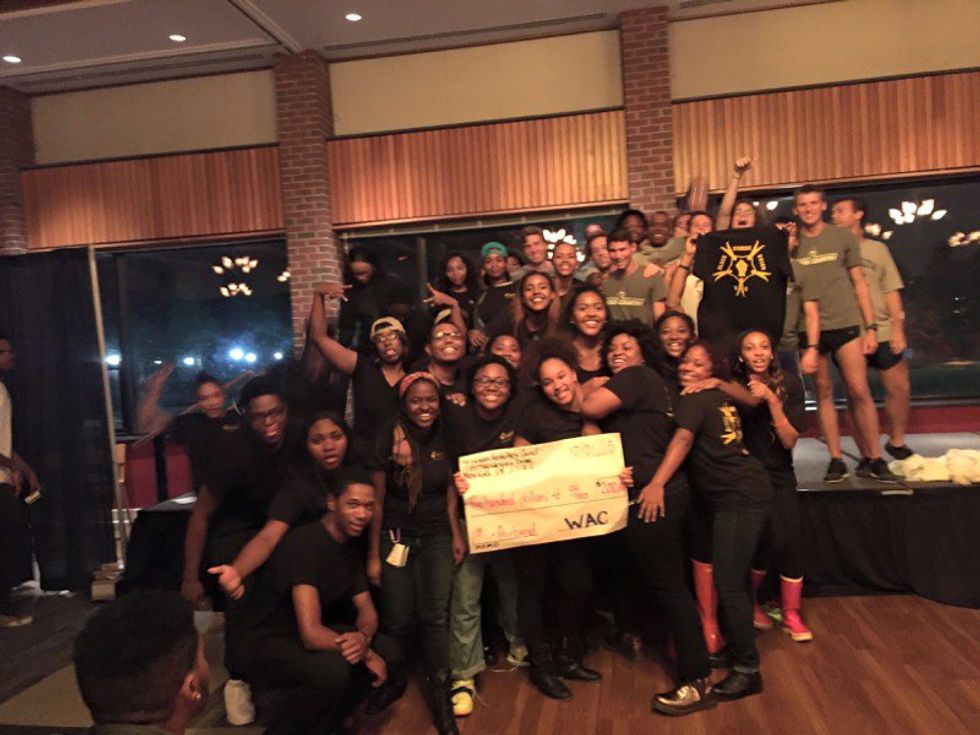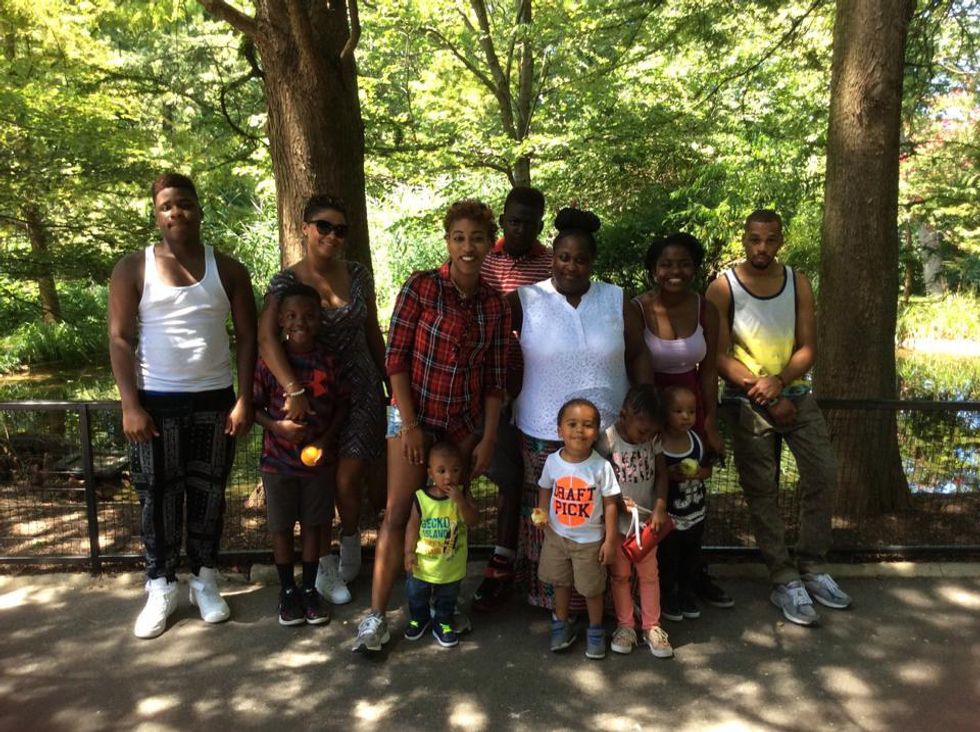The college experience for the first generation college student is a unique one filled with both external and internal adversities. Factors such socioeconomic status, ethnic background, language barriers and other things contribute to uniqueness of each student’s journey.
As a first generation college student who comes from a low-income family, has experienced and survived homelessness, domestic violence, familial substance abuse and addiction, I know all to well the advertises of the first generation college student. It is my goal this article to address some external and internal obstacles the first generation college students faces.
I will share from personal experiences and how I have overcome. Hopefully this article can be a resource for colleges, parents, and schools to better aid this overlooked faction of the college population. No I do not have degree or years of field experience, but I believe my life experiences are just as creditable and resourceful. It is not my goal to quote statistics (in no way taking from the importance) but to quote moments in my life and life lessons I have learned from them. Below, I've clarified the term "first generation" and outlined the internal and external obstacles we face.
First Generation College Student: a student whose parent(s)/legal guardian(s) have not completed a bachelor's degree. This means that you are the first in your family to attend a four-year college/university to attain a bachelor's degree.
External Obstacles
"There is no Road Map"
1. Preparing for College
Most people who have gone to college or currently preparing can relate to the stress of preparing for college. This can mean picking a school, visiting a college, filling out an application, deadlines, essays, paying for an application, or other expenses attributed to preparation.
Being a first generation college student there if there is no road map to follow of those who have gone through the process.This can make a already stressful process even more overwhelming. I remember being a senior in high school and for reasons that take to long to tell I was in homeless shelter by myself. No parent or family members.
I remember how long and tedious the applications process was. To be honest some applications I did quit because I felt overwhelmed. I was smart and was in multiple honors societies at school, but my SAT scores were low.
How I over came this: During my high school career I took advantage of inner city programs such as Upward Bound. A program that took inner city, first generation college students, from different socioeconomic backgrounds on college tours throughout the united states. It also provided SAT prep help, and FAFSA help as well. I was not afraid to ask questions and ask for help.
School guidance counselors, teachers,mentor, colleges, and family members who know the process can help guide a student and their family through the prep process.
2. Not Understanding Financial Aid
As I stated in a previous article, maneuvering through financial aid can be difficult and intimidating for any student. However for first generation college students who may have just been introduced to language, loans, grants, scholarships only by applying to college. This experience is in no way the same for every first generation college student.
Things such as access to information and financial literacy in the household or surrounding community play a huge role in each student's experience.
How I overcame this: I came from a family and community where we did not have a knowledge regarding the kind of financial literacy needed to maneuver financial aid. I had a family member who had gone to college look over my financial aid package, ever I was ever confused I was always in the financial aid office asking question. I also did a lot of research on government and college websites dedicated to informing and guiding students.
3. Stereotypes and Bias in Colleges and Programs
A lot of unfair assumptions are made by colleges regarding first generation students' abilities to be successful inside and outside of the classroom on a campus. Even more unfair and biased assumptions are made about students based on their cultural background, socioeconomic background, family background, language barriers, and etc.
Some colleges and universities --even with the best intentions-- treat these students as problems to be solved and liabilities for the college. As a result, institutions define them through statistics. All these things can have negative consequences on a student's self-esteem.
The Bias of others say more about them than those they are targeted at"
How I overcame: I think the first step is to recognize that these bias and stereotypes exist even at a place you will call home for 4-5 years of your life. The best thing a student and family can do is not internalize these beliefs and realize these beliefs say more about the people who have then than those they are targeted at. I decided to take an active role by speaking out and getting involved in clubs/organizations that promote unity and inclusion.
Internal Obstacles
"Support from Family can be a Game Changer"
1. Self-Criticism (Pressure)
One of the biggest internal battles a lot of first generation college students face is the pressure they put on themselves. This is something I did constantly; I would criticize my grades, my choices in majors, and clubs. A lot of this self-criticism came from the fact that I was insecure and had a lot of fear. In some instances some first generation college students has these pressure put on them by family because of expectations.
How I Overcame: I was really blessed to have a supportive family. My mother would also tell me that me doing my best was enough. I had to do a lot of soul searching and realize that the thing I could do was live for myself. Do what I love and understand I am human.
My faith aided me a lot I kept God first and always prayed. This ultimately led me to realizing that I am human, which means I will make mistakes but as long as I am doing what makes me happy all things will fall into place. Lastly the worse thing you can do is compare yourself to others be authentically you.
2. Coming Home
After going away to college and getting exposed to so many new things when you go home you can feel you no longer relate to family and friends. Some students even lose childhood friendships and family members may accuse a student of "acting different" or "thinking they are better". This reaction from loved ones can leave a student feeling isolated and some may even have what some call an "identity crisis".
How I Overcame: My experience with some family and friends was not confrontational while others were. Change and growth is apart of life whether go to college or not. It hurt that some people did not respect the way I had grown and change.
But what is important is to keep in mind is that a lot of the reactions from loved was is based on fear. Fear you are changing and with this change they no longer have a place in your life. The best thing to do is be patient, be honest about your feelings and give it time understanding that if they truly love you they will come around.
You will also during this time make new friends and relationships. I myself really understand a lot of what was on went to counseling and to talked to people I trusted. The worst thing you can do is isolate and hold all your emotions in.
3. Guilt
Being the first at anything is never easy. I am the oldest and I remember the guilt I felt when I said goodbye. I remember feeling like I was abandoning the people I grew up with. Coming from a home where my family did not always have a lot of resources, I would feel so much guilty about enjoying my time away.
There were times I would get phone calls from home about my siblings not having enough to eat. This impacted so much that there were times where I could not eat because I felt guilty for not struggling with them. Not all first generation college students come from a family background such as this, but for the ones that do guilt can be PARALYZING.
How I overcame: I am beyond blessed to have a supportive family even in the mist when some from my family are not supportive. I went to counseling and the most important thing I took away was that "if I would have stayed what would have changed". Any easy way to overcome guilt is to realize that your very presence in college is making a huge difference for generations to come. While you may have had it hard many people behind you will have it easier because you are now the road map.
Resources for First Generation College Students:
imfirst.org: http://www.imfirst.org/2016/05/cso-announces-merger-with-strive-for-college/
First in Family High School Years: http://www.firstinthefamily.org/resources/
Financial Aid Resources/Information: https://studentaid.ed.gov/sa/resources, https://financialaidtoolkit.ed.gov/tk/resources/all.jsp
























